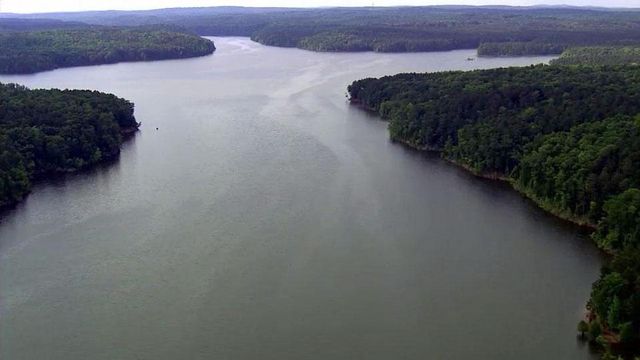Lawmakers choose to delay, not scrap Jordan Lake Rules
A House committee on Thursday pulled back from plans to repeal water-quality regulations for Jordan Lake, choosing to delay the implementation of some to allow more study of the lake's environment.
Posted — UpdatedThe Jordan Lake Rules were adopted in 2009 to cut pollution and runoff flowing into the lake from upstream sources by 35 percent.
The lake, which is a drinking water source for about 300,000 people in the Triangle, has always had problems with pollution because it's fed by urban streams and small tributaries that pick up a lot of fertilizer, sediment and toxins. The pollution has caused algae blooms and fish kills and has forced the closure of some of the lake's beaches in recent years.
The Senate voted in May to scrap the rules, which Republican sponsors say aren't working and are hindering economic development in upstream communities from Greensboro to Durham.
Sponsor Sen. Rick Gunn, R-Alamance, who previously called for starting over with new environmental regulations, on Thursday applauded the effort of House lawmakers and regulators with the state Department of Environment and Natural Resources to reach a compromise.
"The intent of this legislation is to clean the lake and make the water quality better," Gunn said.
Under the new proposal, rules that have already been implemented will remain in place, but those that haven't yet taken effect will be suspended until July 2016. In the next three years, Gunn said, lawmakers will study new technologies, best practices and program costs to come up with an improved plan to keep Jordan Lake clean.
Also, the state will spend $2 million from the Clean Water Trust Fund for a pilot project on improving water circulation in the Morgan Creek/Haw River branch of the lake.
"This is a badly designed lake," Gunn said, noting the various fingers of the lake and berms impede water flow and promote algal blooms.
Opponents questioned the need to delay any regulations, saying that won't improve Jordan Lake's water quality any faster.
"We need to focus on upstream sources (of pollution) as well as the lake," said Rep. Pricey Harrison, D-Guilford. "This is an unfortunate step we're taking."
Rep. Chuck McGrady, R-Henderson, also balked at the idea of the pilot project, saying the Clean Water Trust Fund doesn't have the resources to spend money on unproven technology.
DENR opposed repealing the Jordan Lake Rules, fearing that any violation of federal clean water standards could lead to even stricter regulations. Tom Reeder, director of the Division of Water Resources, said the agency backs the amended bill.
"You're looking at a recovery we're going to measure in decades, not years. So, taking a few years off to look at this technology to see if there's a cheaper, easier, more efficient way to clean up this lake, it makes good sense to me," Reeder said.
Environmental groups and people who rely on Jordan Lake for water said the long-term cleansing of the lake is a good reason to give the existing rules time to work instead of setting them aside after four years.
"Those rules designed to clean up Jordan Lake will clean up Jordan Lake eventually if they're given a chance to work," said Elizabeth Outzs, director of Environment North Carolina.
"I'm extremely disappointed," Morrisville Mayor Jackie Holcombe said. "I'm disappointed in the process that there was not any opportunity for any public comment."
Related Topics
Copyright 2024 by Capitol Broadcasting Company. All rights reserved. This material may not be published, broadcast, rewritten or redistributed.






